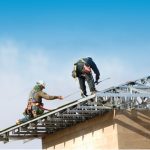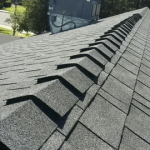Introduction
As we step into 2025, Hawaii has implemented new roof assessment rules designed to increase building safety and climate resilience. These updates are especially relevant for property owners navigating the unique weather conditions of the islands—from hurricane threats to salt-laden air that accelerates roof deterioration. Whether you’re a homeowner or a real estate investor, understanding the latest roofing guidelines is essential for compliance, insurance, and long-term property value.
This article walks you through the 2025 roof assessment changes, what to expect during an inspection, and how Hawaii’s updated roofing regulations affect you.
Why Roof Assessment Is More Important Than Ever in Hawaii
Roof assessment is no longer a recommendation—it’s fast becoming a requirement in many Hawaii counties, especially for properties more than 15 years old or located in hurricane-prone zones. The state’s new regulations stem from increasing climate concerns and insurance requirements aimed at minimizing preventable damage.
Hawaii’s Department of Commerce and Consumer Affairs has emphasized the importance of proactive roofing evaluations as part of a broader push toward resilient infrastructure.
Key reasons for a roof assessment in 2025:
- Aging roofing systems, especially asphalt shingles
- Increased insurance scrutiny
- New local permit requirements
- Compliance with storm preparation codes
What’s New in Hawaii’s 2025 Roof Inspection Guidelines?
The 2025 update brings several critical changes to how roof inspections in Hawaii are performed and documented:
1. Mandatory Roof Assessments for Older Properties
Any residential property over 15 years old now requires a roof assessment every five years to stay in compliance with local building codes. Homeowners must submit an inspection report to the county office.
2. Certified Inspectors Only
All evaluations must be performed by licensed roofing contractors or certified inspectors recognized by the Hawaii State Contractors License Board.
3. Storm Readiness Checklist
New assessments include a Storm Resilience Checklist—evaluating fasteners, underlayment integrity, drainage, and emergency repair plans.
4. Drone & Infrared Technology Integration
Some counties (like Maui and Honolulu) are piloting drone-based inspections and infrared scans to detect hidden leaks or soft spots—making the process faster and more accurate.
The Roof Assessment Process: What to Expect
When scheduling a professional roof assessment, here’s what typically happens:
- Visual Inspection – Looking for missing shingles, signs of sagging, corrosion, and general wear.
- Structural Evaluation – Inspecting rafters, sheathing, and attic areas for water damage or mold.
- Material Condition Check – Evaluating the state of roofing materials like asphalt shingles, underlayment, and flashing.
- Documentation & Report – A digital or physical report outlining any issues, recommended repairs, and an estimated roof lifespan.
Homeowners are encouraged to use local providers such as Fresh Roof Maui, who specialize in roof inspection services across Hawaii, including drone-assisted evaluations.
How These Changes Affect Homeowners & Buyers
The new 2025 guidelines affect multiple areas of property ownership:
- Homeowners must stay proactive with assessments to avoid fines or insurance coverage issues.
- Buyers will likely see pre-sale roof inspections become standard, similar to termite or structural checks.
- Insurance Carriers may adjust premiums or require up-to-date roof inspection reports to bind policies.
- HOAs & Property Managers need to schedule and document assessments for multi-unit buildings or risk code violations.
Roof Restoration vs. Replacement: Know Your Options
Once an assessment is completed, property owners often face the choice between roof restoration and full replacement. Restoration, particularly for asphalt shingle roofs, is gaining popularity due to cost-effectiveness and sustainability.
Roof restoration benefits:
- Extends roof life 5–15 years
- Less expensive than replacement
- More environmentally friendly
- Faster turnaround
Companies like Fresh Roof Maui offer specialized restoration services using high-performance sealants and coatings—ideal for Hawaii’s unique climate.
Roof Assessment Checklist for 2025 Compliance
Here’s a simplified checklist to prepare for your next roof assessment:
- Roof age and maintenance records
- Roofing permit history
- Photos of visible damage or concerns
- Access to attic or crawl space
- Contact info for your roofing contractor
Keeping these documents handy can speed up the inspection process and ensure you’re ready for any required updates.
Choosing the Right Roof Inspector in Hawaii
Not all roofing contractors are created equal. When selecting a professional for your roof inspection, look for:
- Hawaii contractor licensing and certifications
- Positive Google or Yelp reviews
- Experience with local regulations
- Use of modern inspection tools (e.g., drones, moisture sensors)
- Clear estimates and documentation
A trusted name in the industry, Fresh Roof Maui, brings years of local expertise and a customer-first approach to every assessment.
FAQs
1. How often should I get a roof assessment in Hawaii?
According to 2025 rules, homeowners must schedule assessments every 5 years for roofs over 15 years old.
2. What’s included in a standard roof inspection?
A typical assessment includes material inspection, structural review, moisture checks, and a detailed condition report.
3. Can I do a roof assessment myself?
DIY assessments aren’t recognized by Hawaii’s new codes. Only licensed professionals can perform compliant inspections.
4. How much does a roof inspection cost in Hawaii?
Costs range from $150 to $500, depending on roof size, accessibility, and technology used (e.g., drones).
5. Is roof restoration allowed under the new 2025 regulations?
Yes, restoration is encouraged when structurally feasible and may help delay full replacements while remaining code-compliant.
Conclusion
With Hawaii’s new 2025 regulations in place, roof assessments are now more than a good idea—they’re essential. From ensuring safety and storm readiness to complying with insurance and building requirements, staying ahead with routine inspections protects both your home and your wallet.
For reliable, regulation-compliant services, consider working with local experts like Fresh Roof Maui, who understand the climate, materials, and state codes inside and out.








